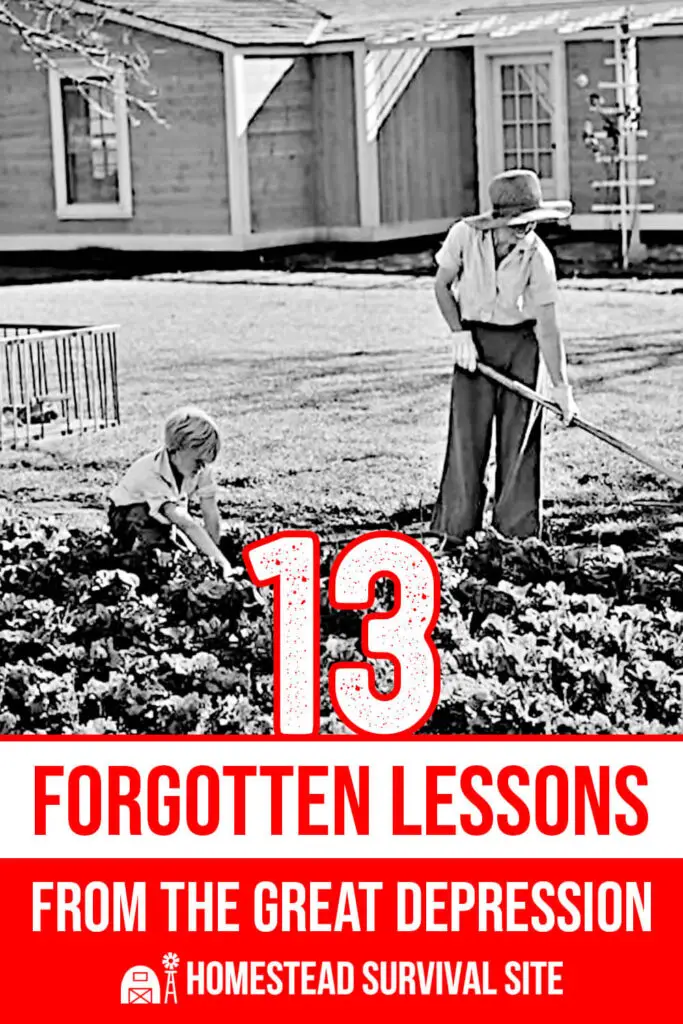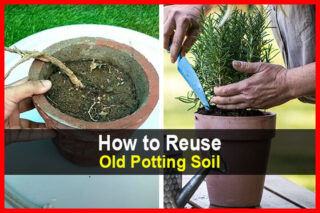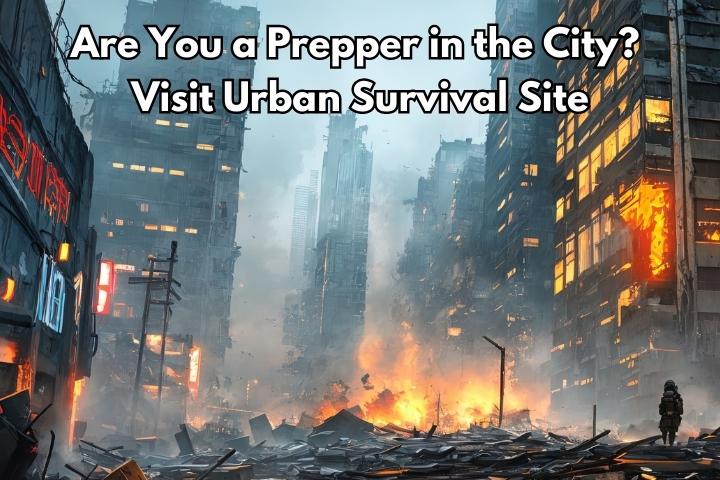When I was a child, we would visit my grandparents every week. One time I was looking for something to play with, so I opened up a closet. To my surprise, it was packed with food. Canned food, boxed food, bags of rice and beans and pasta, all kinds of stuff. This was surprising given that their fridge and pantry were already filled with food.
On the drive home, I asked my parents about it, and my dad said, “Well, your grandparents grew up during the Great Depression.” I'd heard of the Great Depression, but I didn't understand what it was. “But why do they have so much food?” I asked. And he answered, “They were hungry a lot as children, so now they want to make sure they don't run out.”
I've thought about that conversation many times over the years. There have been very few times in my life when I had to go hungry. But for my grandparents, it was a regular thing. And it made such a big impression on them that when they grew up, they essentially became preppers (although that wasn't a term at the time).
One of my biggest regrets is that I didn't spend more time talking to them and asking about their experiences. All I know is that they were very poor. So naturally, I'm always interested when I see articles and videos about wisdom from the Great Depression.
Want to save this post for later? Click Here to Pin It on Pinterest!
This one by Sensible Prepper is particularly good. He learned a lot from his grandmother and also did a lot of research on the Great Depression. Here's a list of some of the things he talks about:
- Families had to move in together, sometimes with three generations in one house.
- Some people were forced to sleep in their vehicles or in tents.
- In the summer, people would sleep outside to stay cool.
- People would go anywhere to find work. Farmhands would follow the harvest around the country.
- The more skills people had, the better their chance of earning money.
- Children were expected to earn money too, even if just foraging for free stuff.
- Having cash was better than having money in the bank. It was safer.
- People had to patch old clothes and sew new clothes. They would use rubber from tires to resole shoes.
- Having good tools was important so you could fix things.
- Knowing how to garden was crucial. People would trade their excess food for other types of food.
- Knowing how to cook from scratch was important. People would make soup from whatever they could find.
- Hunting and fishing got very popular.
- Knowing how to find wild edibles was very helpful.
Now look over that list again and ask yourself, What sort of skills should I learn or improve so I could take care of my family during another Great Depression?
Watch the video below for a more in-depth discussion of these lessons.













We’re not allowed to have goats in the city, or more than four chickens, I don’t care, if I need milk, I’m getting a goat! And chickens for eggs. I’d like to start gardening, but don’t have room for large crops such as wheat and corn. You can bet I’d love to grow my own wheat for bread and definitely grow corn. Fresh corn plopped into hot water with milk and salt is heavenly. We need to buy more metal shelves to stockpile food and water. I’m going to plant potatoes next year, I can live off them and be happy. I’m going to buy oil lamps and lamp oil too. I’ve been ordering books to read and hope to have something to read when the grid goes down. Buy extra shoes too. We wear sneakers more than leather shoes, which would last much longer and boots too. Nice leather boots are very expensive, but three or four pairs will last for years. God bless America and your family.
you are right, when everything go to pot, you need to do whatever you need to do to ensure you and your family survive. last depression is probably the best example of what is to come. so you should start stocking up stuff you use every day and make sure you can improvise or find alternatives, get all the skills you need like foraging (very useful) and have all the food or ingredients you use every day too. don’t forget about getting self defence that don’t use up materials or can be easily replenished or readily available.
if your home is not paid for you will be homeless…..first thing the banks did was call in their loans…..now we have a bigger monster to contend with…..property taxes
What about those who live in an apartment? Especially if they live on very limited income?
if you have a balcony you can container plant, but otherwise hopefully you will have family that will help you and remember too, that several generations all lived under the same roof
I’m one that has limited income and living in an apartment over the past several years I have been stockpiling everything I need and rotating it as I see fit I also sew knit and crochet. I learned these skills very young for my neighbor and for my mom they came in very helpful during the years my kids were growing up save me a ton of money plus I cook from scratch can dehydrate whatever I can to save money and food
This needs to be shared with students in schools instead of all the useless, made up,programs. There is more useful information in this video than in most public class rooms now.
These people were strong, ambitious and selfless. Thank you for posting this
You need to NOT believe that “ALL _____ AND _________ ARE RAPISTS AND KILLERS” .